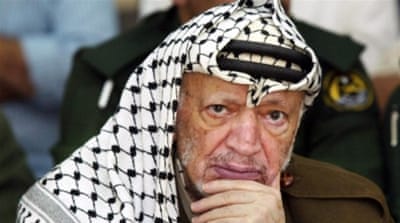
As Israel’s war on Gaza continues into its fourth week, it can be difficult to keep pace of events, grappling with the multiple dimensions of a rapidly escalating conflict that has already caused so much devastation.
Since Hamas launched its lightning attack on southern Israel on October 7, killing 1,405 people and taking at least 200 hostages, Israel unleashed the full force of its firepower on besieged Palestinians in the Gaza Strip – more than 7,000 people have now been killed and the death toll rises almost every hour.
Amid the chaos, a battle of narratives is also being waged, pitting Israel’s backers in the West against Palestinians and Middle Eastern nations that watched this catastrophe unfold at close quarters for the past 75 years. In this hot conflict, history matters.
Al Jazeera has been tackling the big questions about this asymmetrical war, to help you make sense of it.
Take a look at 10 must-read explainers:
What’s the Israel-Palestine conflict about?
The conflict did not start with the Hamas attack on October 7. It didn’t even start with the creation of Hamas.
As a first stop, we suggest our simple guide to the Israel-Palestine conflict, from Arthur Balfour to the Nakba. We walk you through landmark developments decade by decade, with video and visuals, to decode the decades of injustice, dispossession, displacement and humiliation that have brought the region to this moment.

What is Hamas?
You’ve read the reports on the group’s shock attack of October 7, the worst in Israel’s history. But what does the name “Hamas” actually mean? And how did this group, designated as a terrorist organisation by a number of countries, come to administer the lives of 2.3 million people in the Gaza Strip? What are its links with Iran, Syria and Lebanon’s Hezbollah?
What is the Palestinian Authority?
Hamas might control Gaza, but the West Bank is governed – notionally, at least – by the Palestinian Authority (PA). The pair had a civil war, which led to the PA losing control over Gaza in 2007. Governing the shrinking West Bank, the body has all the trappings of a state, but no real power. Many are now asking what its future might be after the war.

Beyond Hezbollah: The history of tensions between Lebanon and Israel
As the war escalates, it is possible that Israel may end up doing battle not only in Gaza and the West Bank, but also on its northern border with Hezbollah in Lebanon. With the threat of a regional war looming, Justin Salhani traces the history of tortured relations between Israel and Lebanon, going right back to 1948 and the creation of Israel.
How Israeli bombing turned Gaza’s desperate situation into a ‘catastrophe’
How did we get here? In three weeks, Israel’s intense bombing campaign has turned much of Gaza to rubble, killing thousands. But, as Indlieb Farazi Saber explains, the enclave was already struggling under a 16-year blockade before bombing turned an existing humanitarian disaster into a “catastrophe”.

Why reopening the Egypt-Gaza Rafah crossing is crucial amid Israeli bombing
The Rafah border crossing has a central role in enabling humanitarian aid to enter Gaza and for trapped people in Gaza who want to leave to escape to safety. But who controls this border? Why have negotiations been so tricky? And what are the implications of throwing it open? Al Jazeera’s Maziar Motamedi explains all.
What is Israel’s narrative on the Gaza hospital explosion?
The first casualty of war is truth. In the hours after the al-Ahli hospital explosion, which killed at least 400 people, Israel’s jumbled and verifiably faked version of events cast serious doubt on its claims that the disaster had been caused by a misfired rocket from Palestinian Islamic Jihad. But, as Al Jazeera explains, sowing confusion is all part of the playbook.

How the Israel war, blockade affect the mental health of Palestinian children
Al Jazeera’s Indlieb Farazi Saber asks psychologists about the mental toll that war exacts on its youngest victims — many of whom, in Gaza, have barely survived after being buried under rubble from buildings brought down by Israeli missiles.
How does trauma manifest in children? And do they stand any chance of recovery?
Is Israel violating the laws of war meant to protect children?
How are abuses against children even allowed to happen? Countless numbers of children have lost their homes, face shortages of food, water and medicine, their education disrupted for the foreseeable future. Areesha Lodhi explains how the Geneva Conventions, the basis for the laws of war, apply to children.

Israel-Gaza war: Which international actors can play peacemaker?
How will this war end? In the immediate aftermath of Hamas’s brutal attack and Israel’s no-limits counteroffensive, Al Jazeera took a look at the diplomatic chessboard to explain who might play a role in making peace. As the situation escalates, positions have oscillated. But the broad brushstrokes of alliances in the making are set out in this explainer.







